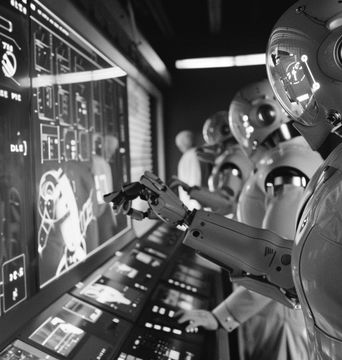PROGRAMMERS CALL OFF CLASS ACTION AGAINST OPENAI AND GITHUB OVER CODE PLAGIARISM CLAIMS

Possibly setting the tone for future AI-related legal cases, a group of programmers recently took OpenAI and its subsidiary, GitHub, to court over allegations of copyright infringement. The heart of the case lay in the claims that GitHub's AI programming tool, Copilot, had been trained on their code without proper attribution.
The landmark lawsuit did not claim straightforward copyright infringement. Instead, the central argument posited that Copilot could generate copyrighted parts of the code without necessary attribution and licensing. This, they suggested, was a blatant violation of the Digital Millennium Copyright Act (DCMA), a key piece of legislation that seeks to protect digital rights and ensures a balanced relationship between the author's rights and the public's interest in the dissemination of the material.
OpenAI is no stranger to legal battles. Since its establishment, the AI powerhouse has faced multiple lawsuits from authors and news organizations alike. However, this was the first major copyright case against the company. Consequently, the nature and outcome of this lawsuit have generated considerable interest, as it could potentially influence future cases and set precedence.
However, Judge Jon S. Tigar of the United States District Court for the Northern District of California dismissed the DMCA claims. While he didn't uphold these specific allegations, he did allow the programmers to progress their claims against OpenAI and GitHub that underscored open-source licensing agreements' violations.
Surprisingly, despite their limited success in a courtroom setting, the programmers eventually chose to voluntarily dismiss the case. With this development in the storyline, the future implications this could have on OpenAI, GitHub, or the wider AI industry are incredibly intriguing.
As of now, it remains unclear where their next steps will take them. Representatives and legal teams of the concerned parties have currently refrained from providing comments on the matter.
All eyes are on this case and similar future lawsuits, as the use of AI continues to grow, shaping our future in profound ways. Whether it be in analysis, content creation, or complex pattern recognition, AI is deeply embedded in our society, making it important to ensure proper use of AI, respect for intellectual property rights, and appropriate compensation in cases where these are infringed.
This case - though it may now be closed - frames an important debate surrounding AI and its usage, a debate that is only set to heighten as AI becomes ever more ubiquitous in our daily lives. It prods us to question: How do we ensure a harmonious co-existence between AI innovation and the rights of individual creators? How will we navigate the hazy waters between what the AI 'learns' and the intellectual products it generates? The future is here, and the answers to these questions will define our relationship with technology in times to come.